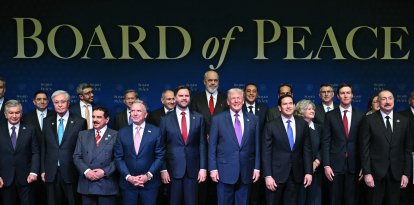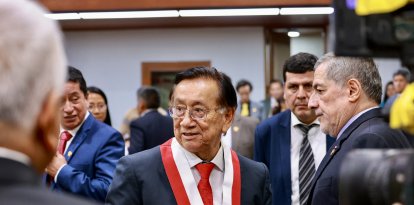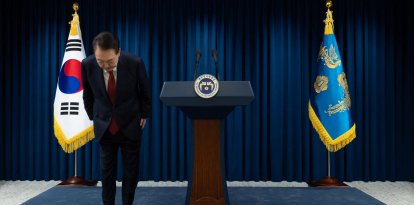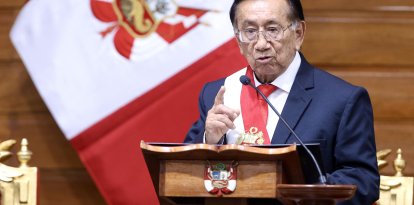Javier Milei sends a bill to Argentine Congress to prohibit the manipulative use of the word "free" by the Government
The legislation, which will be dealt with during the extraordinary summer sessions, also contains a wide range of economic, tax, energy, penal and electoral reforms.

(Cordon Press)
Javier Milei recently signed a mega decree to deregulate Argentina's economy, one of the most repressed in the world, according to the Heritage Foundation. To complement this, his administration recently sent an "omnibus bill" to Congress, which, among other things, contains a section that would make Milton Friedman smile.
The so-called "Law of Bases and Starting Points for the Freedom of the Argentines" (a tribute to Juan Bautista Alberdi, father of the Argentine constitution) contains a wide range of economic, tax, energy, penal, and electoral reforms.
"In order to provide an effective solution to the current crisis, the Congress of the Argentine Nation must adopt a set of emergency measures to restore liberal democracy and the market economy and advance in the Reform of the State with the aim of consolidating economic stability, guaranteeing the right to life, to freedom and property of the Argentines and improve the allocation of resources in the national economy in order to, as our National Constitution states, ensure the benefits of freedom for all the inhabitants of the Argentine soil," reads the bill, which the legislature will deal with within the framework of the extraordinary sessions called by the President.
"In the spirit of restoring the economic and social order based on the liberal doctrine embodied in the National Constitution of 1853, we submit to the Honorable Congress of the Nation the attached bill and express our firm will to undertake, immediately and with suitable instruments, the fight against the adverse factors that threaten the freedom of the Argentines; that prevent the proper functioning of the market economy and are the cause of the impoverishment of the Nation. We promote these reforms in the name of the May Revolution of 1810 and in defense of the life, freedom and property of the Argentines," adds the initial text and then moves on to the articles.
Among so many provisions, there is one that has captured the attention of many. It is Article 209, which prohibits the use of the word "free" to describe a government service. According to the administration, this is because they want to warn the user that the public benefits or services in question are not free but financed by their taxes.
"In the advertising of benefits or services of any kind at the national, provincial, municipal and Autonomous City of Buenos Aires levels that are of free access or attention by citizens, the word 'free' or similar may not be used, and it must be made clear that it is a free access benefit or service financed by taxpayers' taxes," states the article.
For Lautaro Moschet, an economist at Fundación Libertad y Progreso, a local think tank, the article seeks to "whitewash a deceitful dynamic that populist governments usually use to tilt public opinion in their favor."
"When the State provides something at no cost to its population, it does not mean that nobody pays for it, but that it is precisely the taxpayers who, through the payment of taxes, end up financing that service. Therefore, the article generates awareness about who pays for that benefit is the same individual who receives it and who finances it, for example, through the taxes they pay when they go to the supermarket", he added in a conversation he had with Voz Media.

























